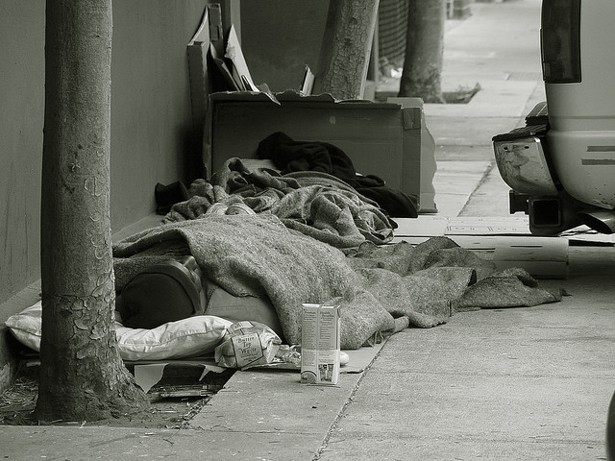Where and how a person sleeps is often a matter of discipline when said person is residentially challenged. If someone ends up sleeping in a car or RV, shelter or friend's couch, they usually have the issue of being up and about before the rest of the world ever wakes up.
In a shelter, rules typically dictate that the residents leave by a certain time in the morning. In regards to vehicles, some cities have regulations about overnight public parking. If a person is working, they have to find ways to make their job fit the situation; they are dependent on others’ schedules and this is where sleep deprivation hits the hardest. It can have a brutal cumulative effect.
Scientists often lecture us about the dangers of poor sleep habits. Don’t take your iPad into bed with you; stop binge watching The Americans in bed (guilty and guilty). Is it really necessary to edit that final report for work at 2am? Sleeplessness contributes to obesity, diabetes, poor diet, and unproductiveness. And yet, even those of us who should have no problem logging a solid eight hours often struggle to get enough.
But for those who don’t have access to a bed, a locked door, and an iPhone alarm, sleep deprivation is caused by more than just the frivolous decision to eat more ice cream at 11:30 p.m. For individuals without permanent housing, sleep is difficult to come by. When there’s no way to secure your personal belongings, it’s dangerous and frightening to be as vulnerable as we are when we’re in a truly restful sleep.
As a result, sleep becomes a matter of when-you-can, where-you-can. And often, you just can’t, leading to a host of other mental and physical ailments. Sleep deprivation has also been linked to an increase in mental illness and drug abuse among teenagers, and higher incidents of violence and aggression. The dangers of the elements (in colder climates, even nodding off in the winter may be a death sentence), the possibility of attack, and the physical maladies that arise from perpetual dampness and grime make achieving good sleep an impossible feat.
Even finding enough ground to stake out can be difficult. The discomfort of homelessness has driven some urban businesses to extreme measures, implementing anti-homeless spikes on their buildings to deter people from sleeping there. There are also potential legal ramifications. The National Law Center on Homelessness and Poverty reports that of 234 major American cities, 40 percent make it a crime to sleep in public spaces.
When the weather turns cold, some cities open warming shelters. When populations are hungry, food banks and soup kitchens provide nourishment. There are resources for assistance paying utility bills, applying for jobs, even getting to and from work.
But aside from low-income housing, which is often in high demand and still often unaffordable, there is no sleep resource. And without a sleep resource, there seems to be little chance for solving the myriad problems associated with sleeplessness.
Suffering from a lack of sleep, how is a homeless person supposed to do all the things necessary for overcoming their homelessness?



No comments:
Post a Comment